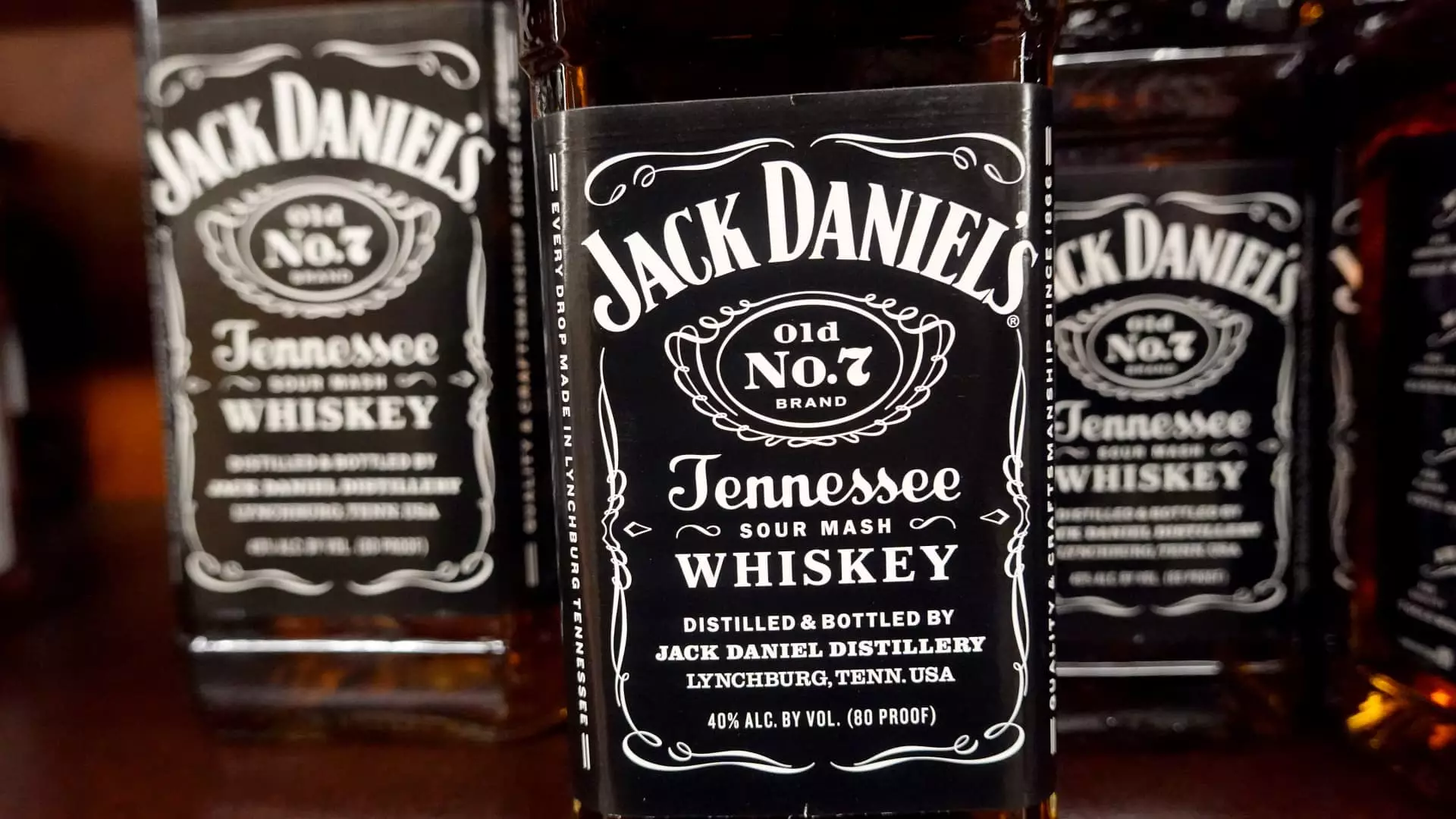The recent plunge of over 18% in Brown-Forman’s shares is more than just a stark figure on a financial report; it’s a loud alarm bell for a company that boasts the iconic Jack Daniel’s brand. The company’s latest quarterly earnings reveal a harsh reality: they’ve failed to meet even the most modest of Wall Street’s expectations. The numbers — 31 cents per share versus the anticipated 34 cents — reflect a staggering 45% drop in net income compared to the previous year. More worryingly, they underline a critical question: Is Brown-Forman losing its grasp on the whiskey market, or is it something deeper, like a chronic misalignment with current consumer behavior?
Tariff Troubles and Market Volatility
Brown-Forman’s leadership, exemplified by CEO Lawson Whiting, described the macroeconomic environment as “exceptionally challenging.” However, the impact of tariffs is a critical factor that cannot be overlooked. The company’s struggle is aggravated by geopolitical tensions, poor discretionary spending on alcohol, and an uncertain consumer landscape, creating a perfect storm for its financial downturn. As Brown-Forman attempts to navigate these tumultuous waters, it becomes clear that they cannot sidestep the fallout of external economic policies. The projections for fiscal 2026 indicate a bleak future as the company braces for low sales and operating income, neither of which paints a rosy picture of recovery.
Tequila’s Disappointment and Whiskey’s Stagnation
Interestingly, while Brown-Forman’s whiskey products, including its flagship Jack Daniel’s, managed to remain flat, its tequila and ready-to-drink portfolios suffered significant slumps, marking declines of 14% and 6%, respectively. This troubling trajectory suggests that the brand’s diversification strategy has backfired. Instead of fortifying their market position, Brown-Forman risks diluting its brand identity. In today’s world where premiumization is key, a stagnant whiskey segment alongside falling tequila sales could highlight a failure to innovate or adapt to changing consumer tastes.
The Tough Road Ahead
The forecast from analysts at Bernstein is grim. A looming 50% tariff on U.S. whiskey in the EU could dramatically shrink Brown-Forman’s earnings, exacerbating an already precarious situation. Unlike larger competitors like Constellation Brands and Anheuser-Busch, who are more diversified and thus less vulnerable, Brown-Forman’s singular dependency on its legacy brands may prove to be an Achilles’ heel in this volatile environment. The sentiment from Canadian liquor stores removing Brown-Forman products underscores a growing resistance against American brands, rendering the company twice-shackled by both tariffs and market mistrust.
At this juncture, it would be easy to dismiss the predicament confronting Brown-Forman as just another corporate misstep. However, when viewed through a broader socio-economic lens, their struggles resonate more profoundly. They exemplify the potential tumult that can ensue when a company becomes too reliant on legacy brands in an ever-evolving marketplace. The company must undertake a serious re-evaluation of its operational strategies and product offerings if it hopes to keep its place in an increasingly competitive and unpredictable landscape.

